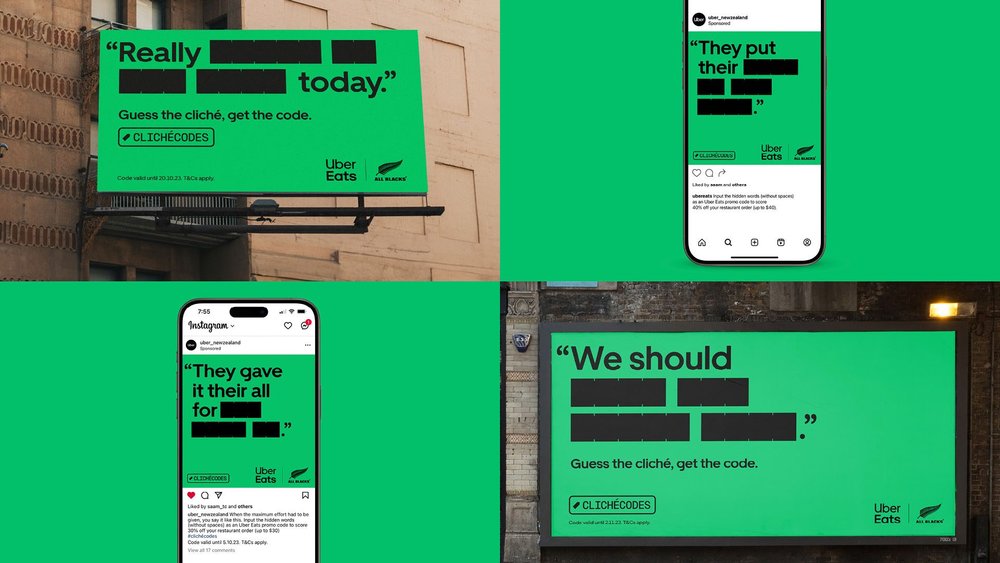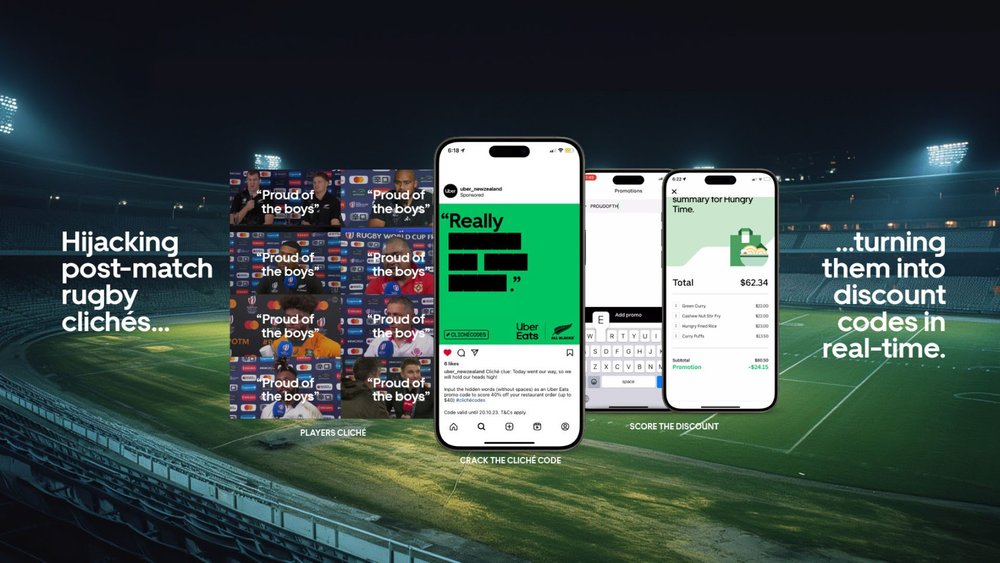Campaign of the Week
Uber Eats plays with sport clichés for Rugby World Cup discount code campaign /
Food delivery app dominates top rugby event despite not being official sponsor, reaches close to half of New Zealanders
During the Rugby World Cup last year, the food delivery app Uber Eats faced a challenge: despite sponsoring New Zealand’s national rugby team, it was prohibited from mentioning the World Cup due to not being an official event sponsor.

To be able to communicate about the world’s most important rugby event, the delivery brand launched a tournament-long campaign on the first All Blacks game on 16 September 2023.
In partnership with agency Special Sydney and Special Aukland, Uber Eats turned rugby players’ post-match interview clichés into time-sensitive discount codes. To redeem the codes and get a discount on their next order, people had to decode the clues dropped on Uber Eats’ social media and in digital OOH ads. For example, when several rugby players said they were ‘really proud of the boys’, Uber Eats posted the five-word phrase on its Instagram page, with four of the words blacked out for people to guess.

Results / According to the agency, the Cliché Codes campaign reached 2.3 million out of 5 million New Zealanders and gathered 5 million total impressions. Throughout the tournament, 84,510 codes were redeemed, equivalent to NZ$1.7m ($1.05m) worth of discounts.
Contagious Insight /
From the horse’s mouth / Cliché Codes turned the words of rugby stars into incentives to order on Uber Eats, circumventing sponsorship restrictions. The Rugby World Cup presents a huge marketing opportunity, which Uber Eats would have largely missed out on if it hadn't found a creative workaround. By seizing the moment right after games when people are likely to be hungry and want a post-game meal, Uber Eats cemented its presence in a context from which it was initially excluded – a clever tactic since the brand was prohibited from talking about the event directly.
This is a great example of how working around communication restrictions can unlock creativity in a way that serves your brand all the more. Uber Eats didn’t pay to be one of the sponsors on the wall behind rugby players, and that could have played against the brand. But ultimately, going around sponsorship rules attracted more attention to the brand by leveraging the voices of rugby stars that fans listen to and care about.
New delivery / The campaign drives people to Uber Eats’ social media accounts and incentivises orders. Sowing clues on Uber Eats’ earned media channels means people will have to engage with the brand online to get their discounts, facilitating entertaining interactions with Uber Eats. Getting people to seek out codes is likely to make them feel like they’ve worked for their rebate, turning interactions with the brand into a fun and light experience. This means people will likely remember the brand better, too, as getting people to ‘work’ for their discount leverages the generation effect, which states that people remember information better when they actively participate in creating it. By having customers decode the clichés to unlock discounts, Uber Eats increases mental availability and makes the brand more memorable.
Want more of the same? /
We don’t just write about best-in-class campaigns, interviews and trends. Our Members also receive access to briefings, online training, webinars, live events and much more.







